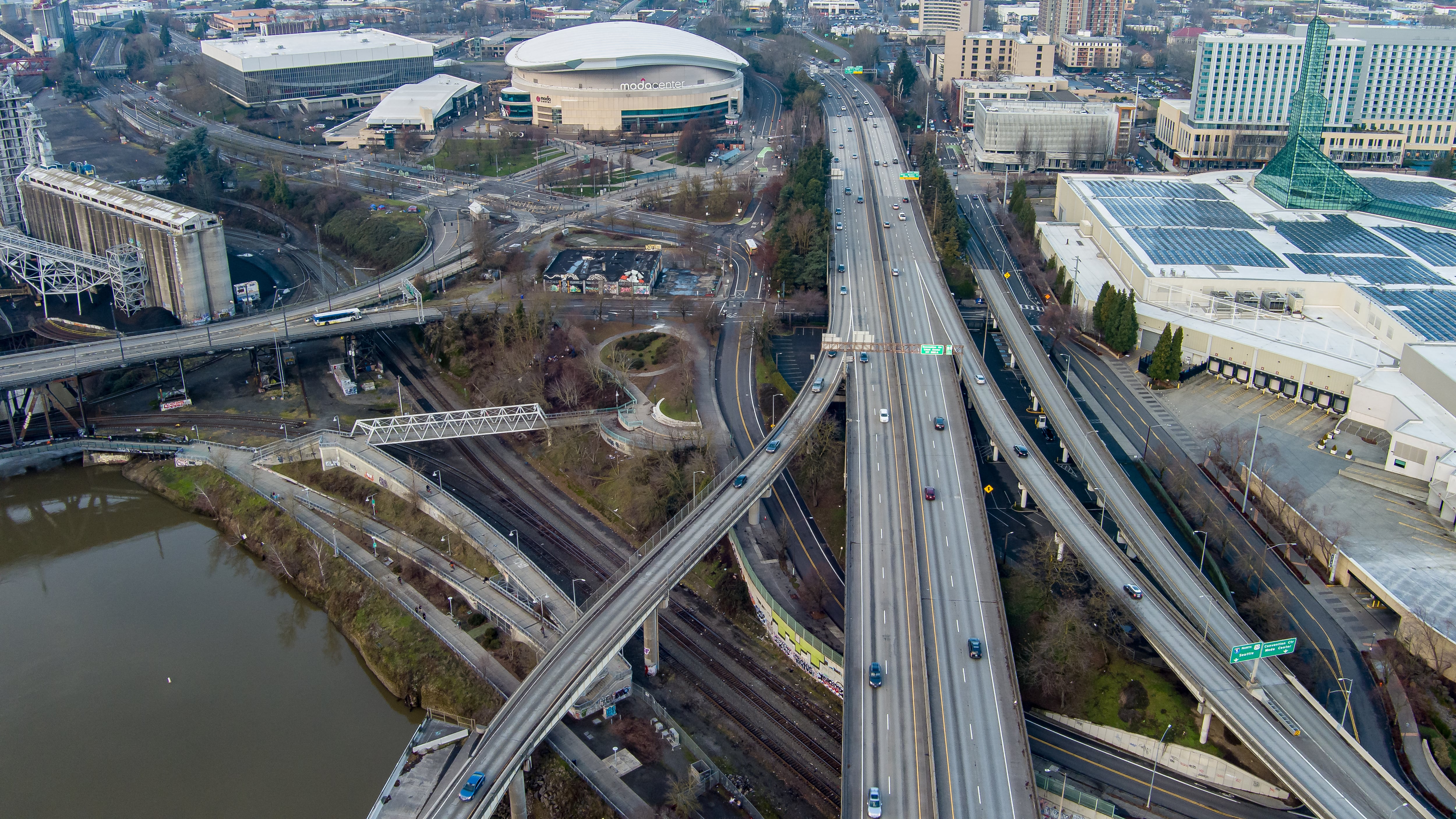Even as the Legislature’s Joint Committee on Transportation travels around Oregon in an effort to build support for a massive transportation funding bill for 2025, six groups filed a lawsuit in U.S. District Court on Aug. 9 seeking to block a marquee project on the Oregon Department of Transportation’s wish list—the expansion of Interstate 5 at the Rose Quarter. (The project would run between Interstates 84 and 405.)
Opponents, led by the group No More Freeways, have long argued that ODOT’s plan would create more traffic and emissions and would work in contradiction to the state’s climate goals, which include reducing emissions 45% below 1990 levels by the year 2030.
In their lawsuit, opponents say the Federal Highway Administration and the U.S. Department of Transportation violated their own rules by failing to conduct a full Environmental Impact Statement for the project, which they say was required under the National Environmental Policy Act.
“Authorization of the project without preparing an EIS violates NEPA because the project is a major federal action significantly affecting the quality of the human environment,” says the lawsuit, filed for the plaintiffs by Portland attorney Karl G. Anuta. Oregon Public Broadcasting first reported the lawsuit.
The opponents, who also include the Eliot Neighborhood Association, Neighbors for Clean Air, Families for Safe Streets, the Association of Rail and Transit Advocates and BikeLoud, contend that ODOT, which would build the project, has relied on outdated modeling of traffic and environmental impacts and has failed to fully consider alternatives, such as implementing congestion pricing or not building the project. (Many of the same groups sued ODOT in state court in May, arguing that the agency’s plan for the Rose Quarter violated local transportation plans.)
The Rose Quarter project was part of a 2017 transportation package the Oregon Legislature passed. It was then budgeted at $500 million. Since then, cost estimates have risen to $1.9 billion, in part because the plan now includes capping I-5 through parts of the Rose Quarter in an effort to knit back together the Albina neighborhood. ODOT gutted that historically Black neighborhood when it constructed I-5 through Portland in the 1960s, as highway departments did in numerous cities across the country.
Critics have faulted ODOT for not conducting a full EIS for the project. Instead, the agency conducted a less rigorous Environmental Assessment, which they later supplemented with a revised assessment. Following the publication of that document, the feds issued a “finding of no significant impact,” effectively greenlighting the project.
The new lawsuit asks the court to find that ODOT and its federal partners violated NEPA and must conduct a full EIS. Such a finding would have the effect of, at a minimum, delaying the project but also allowing opponents to push for the consideration of factors they say have been slighted.
For instance, critics have zeroed in on ODOT’s proposed expansion of I-5′s width, which they say flies in the face of climate policy and would not produce the congestion relief that supporters of the project hope would result.
“The project will also create a roadway capable of accommodating even more additional lanes of traffic beyond what is proposed for the project, and the adverse impacts of that increase in capacity was not analyzed or disclosed” in the revised Supplemental Environmental Assessment, the lawsuit says.
Since ODOT pitched lawmakers on the Rose Quarter in 2017, the Albina Vision Trust built support for repairing some of the historical injustices Portland’s Black community suffered when I-5 plowed through Albina. AVT and Portland’s congressional delegation, led by U.S. Rep. Earl Blumenauer (D-Ore.) secured $450 million in federal funding earlier this year to help pay for caps over the freeway. That means there is currently far more money appropriated for capping I-5 than for ODOT’s expansion project.
Chris Smith, one of the leaders of No More Freeways, says that’s not a problem.
“Portland can absolutely move forward with capping this freeway without expanding it,” Smith said. “Federally supported effort to heal the Albina neighborhood with generational investments in Black wealth creation shouldn’t be delayed or blemished by ODOT’s stubborn insistence in doubling the width of the freeway.”
Attorneys for the federal agencies could not immediately be reached for comment.

